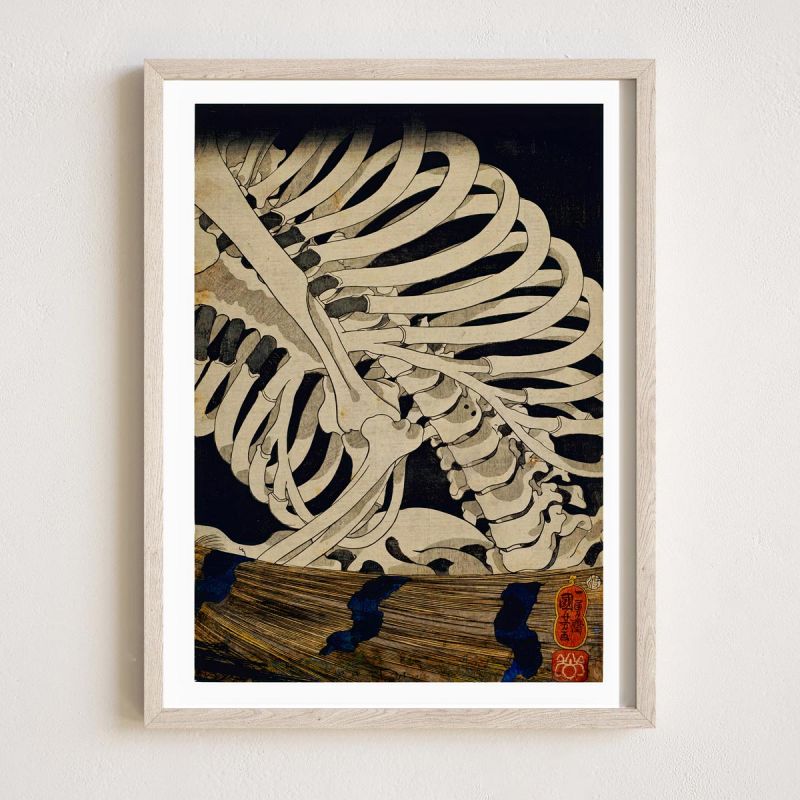Tryptique d'estampes japonaises, Utagawa Kuniyoshi, Soma no furudairi ni Masakado himegimi Takiyasha yojutsu o motte mikata

Soma no furudairi ni Masakado himegimi Takiyasha yojutsu o motte mikata o atsumuru
In the ruined palace of [Taira] Masakado at Soma his daughter Princess Takiyasha uses sorcery to summon allies [the monster skeleton]
Brand:
PRODUCT SPECIFICATIONS
| width | 30 cm |
|---|---|
| length | 40 cm |
| Packing | Packaged in a rigid plastic sleeve - without frame |
| Product origin | Made in France |
| Dimensions | 30 x 40 cm |
| paper quality | Semi-matt coating (silk) 250 g/m² |
| Compositions | paper |
Learn more
In the ruined palace of [Taira] Masakado at Soma his daughter Princess Takiyasha uses sorcery to summon allies [the monster skeleton]
Utagawa Kuniyoshi (1797-1861) was a renowned Japanese artist of the Edo period, famous for his ukiyo-e prints . Appearing at Utagawa School, Kuniyoshi is particularly known for his representations of samurai warriors, historical and mythological legends, as well as for his epic battle scenes. His distinctive style combines great attention to detail and a wonderful use of colors, which contributed to his popularity.
Kuniyoshi was also influenced by Western culture, incorporating elements such as perspective and composition into his works, which were unfamiliar to Japanese art at that time. In addition to the heroic scenes, he created humorous stamps and representations of everyday life, offering a rich and varied insight into Japanese society of his era.
His artistic heritage gives him a lasting influence, inspiring generations of artists and contributing to the international appreciation of Japanese art.
SHIPPING AND RETURNS
Delivery times:
- 1 to 3 business days for France, Belgium, and Switzerland.
- 3 to 5 business days for other European countries.
- 3 to 5 business days for other countries via DHL.
This item is shipped from our warehouse in France.
You can return or exchange an item within 14 days of receiving your order. For more information, please consult our Return Policy.

.jpg)

























































































